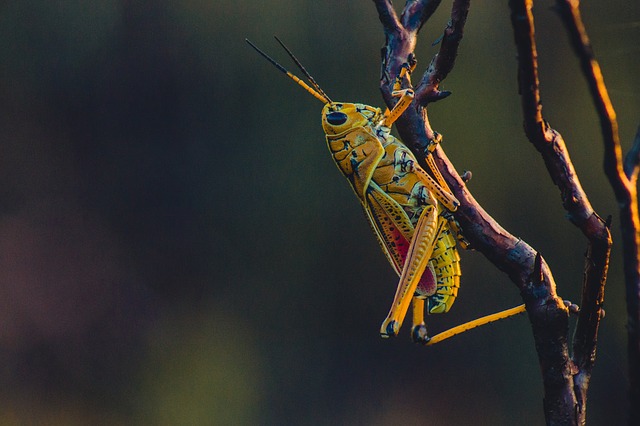Canada’s self-proclaimed top packaged meat provider, Maple Leaf Foods, has made an investment in Entomo Farms, the largest insect farm for human consumption in North America.
Founded in 2014 by brothers Jarrod, Darren, and Ryan Goldin, Entomo Farms operates a 60,000 square-foot production facility, manufacturing and providing insect protein ingredients including cricket and mealworm powder and whole roasted crickets to meet the need for alternative proteins for more than 50 companies across eight countries.
“From our first meeting with Maple Leaf Foods, we were impressed with their commitment to environmental sustainability, their expertise with scale farming, and their track record in marketing to consumers,” said Jarrod Goldin, president and co-founder of Entomo Farms.
The undisclosed sum of funds raised through the Series A will be used by the company to scale up production, while the access gained to the expertise that Maple Leaf has to offer will aid the company in acknowledging what customers need as it grows.
“These funds will allow us to expand production to meet increasing demand while Maple Leaf’s knowledge will help us continue to meet the needs of large food producers as we grow,” added Goldin.
Global Goals
The deepening of the connection between consumers and their food supply chains, along with a rising popularity of veganism, concerns over animal rights, and awareness around the hormones, antibiotic usage, and unsustainability inherent in the global livestock industry have pushed many people in Western markets to look toward alternative ways to get protein into their diet.
Global protein consumption is expected to climb at a CAGR of 1.7 percent, reaching 943 million tons by 2054, according to Lux Research. Over this same time period, alternative protein sources are forecast to command up to a third of the protein market.
Within this landscape, and noting the long-term potential in the category, Maple Leaf Foods has been maneuvering to expand its reach away from meat proteins into a variety of alternative proteins, and to indeed, become the largest sustainable protein provider in the world.
“Our minority venture investment in Entomo is consistent with our vision to be the most sustainable protein company on earth,” said Michael McCain, president and CEO of Maple Leaf Foods. “Entomo Farms and Maple Leaf’s products will be separate, but we are excited to help foster their continued leadership in insect protein and aspiration to become the largest insect protein supplier in the world. We see a long-term role in this form of sustainable protein delivery, both for animal and human consumption, as it is elsewhere in the world.”
Maple Leaf acted upon this strategy through two high profile deals last year. In February 2017 the company announced its agreement to acquire U.S.-based, plant-based protein food manufacturer LightLife Foods Inc. from Brynwood Partners VI LP for $140 million plus associated costs.
In 2016 Lightlight controlled a 38 percent market share of the U.S. refrigerated plant proteins market, and posted sales of approximately $40 million. Founded more than 30 years ago in Turners Falls, Massachusetts, Lifghtlife produces a range of more than 30 products including vegetarian and vegan burgers, hotdogs, beef, chicken, deli meats, tempeh, and breakfast foods.
The deal gave Maple Leaf access to the U.S. plant-based proteins market, which is estimated to be worth $600 million, with the refrigerated sub-category worth $110 million, while posting growth in the double digits, according to the company.
Less than a year later, in December 2017, Maple Leaf made a second move in the space, acquiring Field Roast Grain Meat Co., a Seattle, Washington-based maker of premium plant-based meats for $120 million.
Several Suitors
Alternative proteins are beginning to experience an abundance of global scale suitors.
On October 10, 2016, Tyson announced that it had acquired a five percent stake in California-based plant-based protein company, Beyond Meat, for an undisclosed amount as part of a financing round that included previous Beyond Meat investor, the Humane Society of the United States.
This deal was followed by a second Tyson announcement in January of this year, that Tyson Ventures, the $150 million venture arm of U.S. meat processor Tyson Foods, has doubled down on its commitment to alternative protein sources and has joined the ranks of Cargill, Bill Gates, and Richard Branson as an investor in Memphis Meats.
Although the terms of the investment were not disclosed, Tyson states in a company release that its minority investment reflects its “commitment to explore innovative, new ways of meeting growing global demand for protein.”
Other high profile deals by mainstream food companies to gain a foothold in the rapidly growing plant-based food category include the acquisition of the Gardein line of plant-based meat alternatives by Pinnacle Foods in 2014; investments made by General Mills’ 301 Inc. in Beyond Meat and Kite Hill, a producer of dairy alternatives made from nuts and other plant proteins; the acquisition of White Wave, a producer of organic and plant-based dairy alternatives by Danone in a deal worth $12.5 billion; the acquisition of Harvest Innovations, a soy protein and gluten-free company by Archer Daniels Midland (ADM); and, in January of this year, Cargill announced an undisclosed investment in PURIS, the largest pea protein producer in North America, to create a joint venture for the production of plant-based foods.
-Lynda Kiernan




